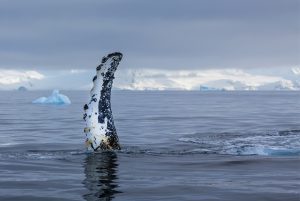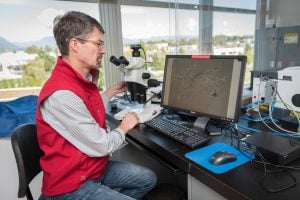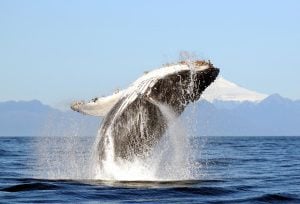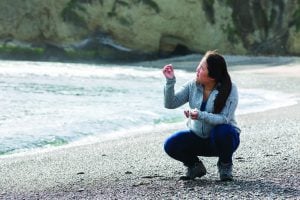Sheri Bastien is a Canadian public health researcher at the Norwegian University of Life Sciences in Ås. Soon she’ll be setting sail as part of eXXpedition, an all-female around-the-world sailing expedition that aims to study and raise awareness of plastic pollution and toxins in the oceans. She spoke to Canadian Geographic about what she hopes to accomplish on her leg of the trip.
What is eXXpedition all about?
It’s a two-year scientific expedition involving 300 women. I’m taking part in the fifth leg from Aruba to Panama via the San Blas Islands from December 11 to 22.
We’re going to be sampling surface microplastics using a manta trawl (a floating net sampling system that’s towed behind a boat) and processing it onboard. We’ll also be taking water samples from the upper water column using a Nansen bottle (a metal or hard plastic device that’s lowered into the ocean to a specific depth using a cable). Finally, we’ll sample sediment closer to the coastline. So, we’re really looking at the presence of microplastics across all different aspects of the ocean.
The first part of eXXpedition is to conduct solutions-based science. The other components of this project, which really resonate with me, are to challenge and shift perceptions using our experience as a platform to raise awareness, and to empower others to take action locally to create a community of change-makers.
What led you to eXXpedition?
Looking back at my career, I’ve always searched for opportunities to connect adventure with science. During my time as a postdoctoral researcher at the University of Calgary, I was involved with a global health field school that took students to the Serengeti in Africa for a month to study human and animal health. I founded Project SHINE, working with youth to develop simple, low-cost and low-tech ways to improve sanitation and hygiene in low- and middle-income countries.
When I saw the call for crewmembers for eXXpedition, it struck me immediately because I had wanted to transition the focus of Project SHINE to engage youth more broadly in ocean plastics. It was a natural fit.
What is your goal during eXXpedition?
Ocean plastics are not my area of expertise, but I view this expedition as an opportunity to learn more, to get inspired by fellow crewmembers and to use it as a platform for my future research on engaging youth and communities in a broader effort. The UN Decade of Ocean Science for Sustainable Development has been declared for 2021 to 2030, and I’ve already signed up for upcoming events where I can be a part of high level policy dialogue in this respect. So really, I want to use this trip as an opportunity to become involved.
What can people do to help fight ocean plastics?
We need to avoid paralysis by analysis, the bystander effect, and other forms of apathy. It is important that people get involved and realize that the smallest actions, even at the individual and household level, have a powerful impact. I hadn’t heard of the 10,000 Changes program to help solve plastic pollution, but it’s so important to make Canadians aware that conscious choices, even the smallest ones, can have huge ripple effects.
Visit 10000changes.ca to learn more about what YOU can do to fight plastic pollution!




